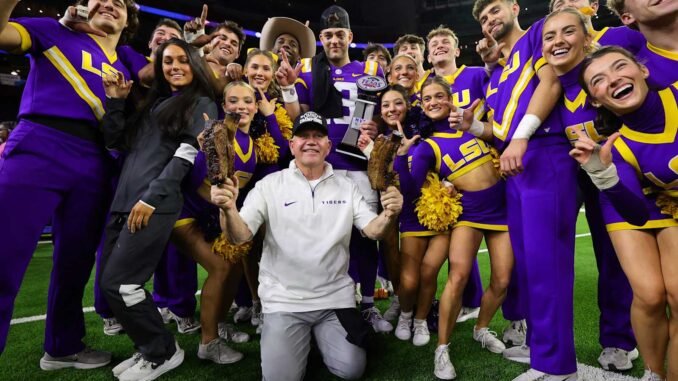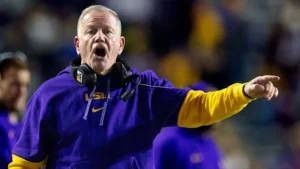
After a disappointing season for LSU football, which included losing top quarterback recruit Bryce Underwood to Michigan, the Tigers have significantly ramped up their Name, Image, and Likeness (NIL) efforts. A group of prominent donors, including private equity executive Holden Spaht, Raising Cane’s founder Todd Graves, Baton Rouge attorney Gordon McKernan, and Pepper Rutland, contributed seven-figure donations, helping raise $13 million in the weeks following the 2024 season.
This influx of funds, combined with individual contributions to the Tiger Athletic Foundation—LSU’s fundraising arm—has allowed the program to secure the top-rated transfer portal class and retain its high school signees. The NIL collective, Bayou Traditions, plans to front-load these payments ahead of potential revenue-sharing legislation expected this summer.
“We thought, ‘Let’s push all the chips in,'” said Carlos Spaht, former co-manager of Bayou Traditions and Holden Spaht’s brother. “It’s not just about improving on-field performance and winning a national championship. By front-loading these collective dollars, future revenue-sharing funds can go even further.”
Head coach Brian Kelly also contributed $1 million to the collective, matching fan donations to encourage broader participation. His efforts sparked over 4,000 individual NIL-specific donations to the Tiger Athletic Foundation. In fact, LSU raised more for NIL in the months following the 2024 season than it had in the previous three years combined.
Kelly met with high-level donors in December to provide transparency about the team’s needs and the resources required to make a postseason run. Holden Spaht played a pivotal role in rallying support from Graves and others, setting a new benchmark for NIL contributions at LSU.
According to Carlos Spaht, his brother Holden is a passionate LSU football fan who made multiple seven-figure donations to fuel the team’s NIL initiatives. Both brothers grew up in Baton Rouge and have deep ties to the university, with their grandfather having served on LSU’s board of supervisors.
This aggressive NIL strategy reflects LSU’s commitment to rebuilding its football program and competing at the highest level, both on and off the field.
Leave a Reply